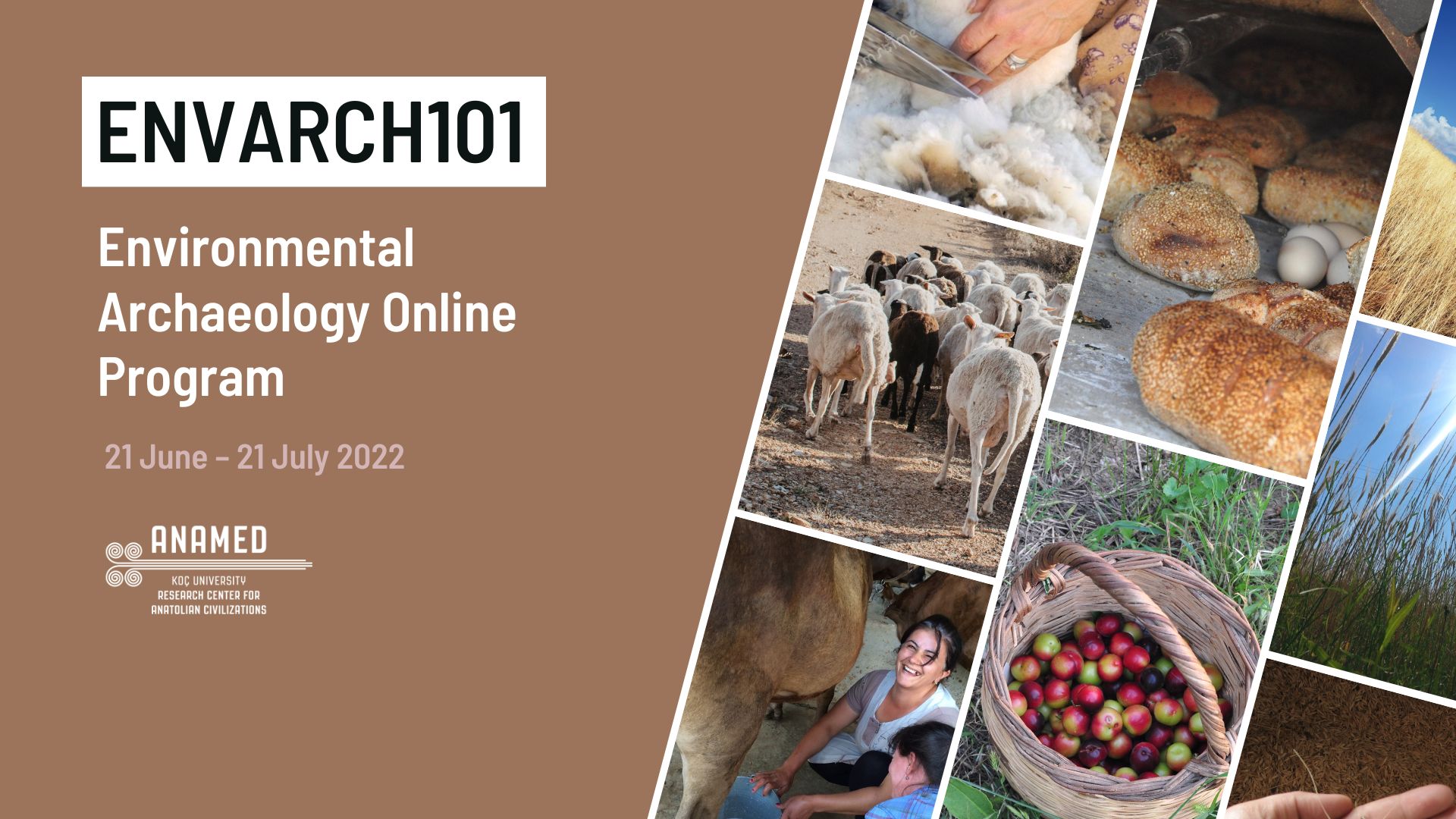How much time do I have to complete the program?
The program will be available to you for a month, between June 21 and July 21, and you are free to complete the modules according to your own pace.

Derslerin Başlangıcı
Derslerin Sonu
The program is designed to introduce participants to environmental archaeology broadly, including a survey of research questions and methods, and to explore in depth three important subfields: archaeobotany, zooarchaeology and bioarchaeology.
Hannah Lau holds a PhD in Archaeology from UCLA (2016). Her research examines how people have coordinated resource exploitation in the past and how such cooperation among ancient people, particularly in agropastoral production, elicited change or was changed by shifts in sociopolitical relationships. Her analyzes of zooarchaeological, including biogeochemical analyses, material from the Halaf period site of Domuztepe (ca. 6000–5450 cal. BCE) in southeastern Türkiye document social and economic cooperation and coordination among participants in both daily subsistence activities and large-scale communal feasting events.
Müge Ergun is an archaeobotanist who holds a PhD from Istanbul University Prehistory Department and Paris 1 Panthéon-Sorbonne University Doctoral School of Archaeology (co-tutelle, 2016), and an MA from Istanbul University Prehistory Department (2009). Since her first encounter with archaeobotany in 2005, she has been investigating people-plant interactions and their effects on the economical and socio-cultural lives of communities with a special interest in the beginnings of agriculture.
Benjamin Irvine is a bioarchaeologist who specialises in utilizing osteological, archaeological, and stable isotope analyses to examine human-environment interactions, dietary habits, subsistence practices, agricultural strategies, and mobility patterns of populations in ancient Anatolia and neighbouring regions. He is currently also an Honorary Research Fellow of the BIAA.
Ceren Çilingir is an archaeobotanist and a PhD student in the Prehistory Department at Istanbul University. She holds a MSc degree from Middle East Technical University, Settlement Archaeology Program and an undergraduate degree from Mimar Sinan University of Fine Arts, Archaeology department. In her dissertation, she aims to understand the food economy through agricultural technologies, traditional farming methods, and the use of plants that are cultivated from Tepecik-Çiftlik (6300–7000 BC). In this direction, she has been conducting ethnoarchaeological field studies since 2010, where she documents the traditional crop processing methods still used in the district of Niğde-Çiftlik and its surrounding villages. Her research interests include ethnoarchaeological interpretations of cultivation and food preparation, plant-based subsistence strategies and human-plant interactions in the prehistoric communities of Near East.
The program will be available to you for a month, between June 21 and July 21, and you are free to complete the modules according to your own pace.
The program consists of 4 sections containing 17 modules in total. Each module is approximately 20–25 minutes long, and at the end of each module you are asked to answer multiple-choice quiz questions. If you do not succeed in passing the quiz at first, you can repeat it until you find the correct answers. It is not possible to proceed to the next module or section, however, without answering a certain number of questions correctly.
Those who successfully complete all sections and quizzes are entitled to a certificate.
Unfortunately, participants who do not successfully complete the program during the program dates will be unable to participate in future offerings of the Environmental Archaeology Online Program.